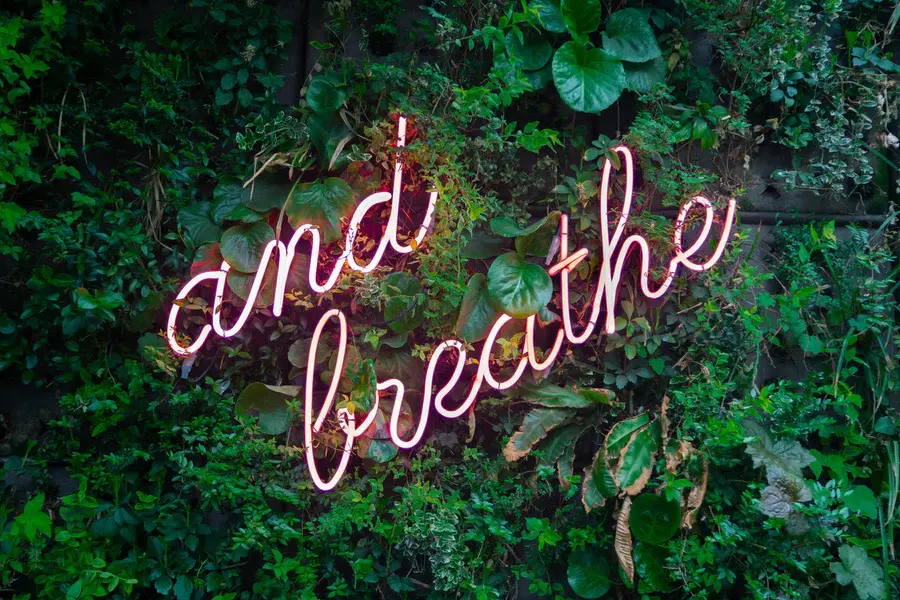How Mindfulness Can Enhance Your Well-being
6 Simple Ways to Practice Mindfulness in your Daily Life
One of the simplest things we can do for our well-being is to become mindful. Prepare yourselves: this could take a lifetime. “But you said it was simple!” Ah, the difference between simple and easy is vast but attainable. Easy is something that requires little effort whereas simple is direct and uncomplicated. Take your time. The effort is worth it. Your body, mind, and spirit will thank you!

What is mindfulness?
Based on Eastern Zen philosophy, mindfulness is the practice of three things:
- awareness of the mind, body, and environment
- attention to the present moment
- a kind, compassionate and nonjudgmental attitude
Think of mindfulness as a commitment to yourself. A commitment to reconnecting and taking care of yourself: body, mind, and spirit, every day. Aside from the positive mental and physical health benefits, it is a guide to leading a meaningful and happy life. Win-win!
Benefits? Mindfulness, FTW!
Mindfulness offers so many benefits because it helps the body, mind, and spirit. It can help combat issues like depression, anxiety, stress, pain, and insomnia without the use of medications. Hello, happiness! It can also offer greater mental focus, improve memory and cognition, enhance mood and sexual health, lower blood pressure, strengthen the immune system, and improve the quality of life for those battling diseases.
6 simple ways to practice mindfulness in your daily life
- Create a morning routine. Creating a morning routine is one of the most wonderful ways to incorporate mindfulness first thing into your day! Each new day can open your eyes to wonder. Don’t turn on any devices when you wake. Keep that pesky phone stowed away as long as possible! Starting the morning in silence without news and noise can set the tone for maintaining a peaceful day. Take a few deep breaths to quiet the mind and try setting an intention for the day. It can be as simple as, “Today I am going to take time to eat well.” Or “Today I am going to be kind to myself.” Check back in throughout the day to remind yourself of your intention. It’s a great start to learning the practice of mindfulness!

- Breath work. The act of breathing is one of the body’s strongest self-healing mechanisms. It can help decrease stress and anxiety, blood pressure, heart rate, release trauma and grief, increase our deep sleep patterns, and help build immunity. Simple breath work can make a difference in just moments. Try these techniques designed for beginners.
- Stop and smell! Incorporating scent into your breath work can make it easier to slip into that relaxed state. When we tap into the limbic system in the brain with scent, it can elicit positive memories and emotions, and lower stress levels. Lavender and sandalwood are well known for their calming properties and scents like vetiver and sandalwood are known for grounding the mind. Find a perfect pairing and you’ll be saying om in 1-2-3!
- Slow it all down. No, really, just slow down. Watch everything around you matter where you are. Take it all in. They weren’t kidding when they said to stop and smell the roses. Stop and take in your surroundings. Look around. What is around you? Turning tasks and the mundane parts of life into wonder is key to honing into mindfulness. The simple and deliberate act of slowing down is a game-changer. Walking in nature is a grounding practice that is a great way to slow things down. And after time, it will become part of your daily routine and an important part of your mindfulness practice.
- Be present. Living in the present moment will bring calm and wonder to the ordinary! Quite simply, staying present means being conscious of the moment and free from all other mental chatter. It allows us to not worry about what has happened in the past, because it is in the past. And we do not worry about the future because we do not know the future. We only know this present moment. This is key in learning how to meditate! Being able to stay present in moments of either stress or calm will improve relationships with easier communication, more empathy, and better listening skills. Healthy relationships equal better health!
- Meditation. This is the big one and the most dreaded one for a lot of people. Meditation can be intimidating but there are so many tips and ways to make it easy and accessible. The biggest thing to remember is that it is called a practice for a reason. It takes time and effort. No one starts meditating and nails it on the first try. Or the tenth. There are no meditation “champions.”
- Try meditation apps! Creating a meditation practice can help eliminate anxious feelings and incorporate more zen into everyday life. However, for some, just the idea of having to create a practice and find the time is overwhelming itself. Fear not! There are so many wonderful meditation apps to choose from these days: Headspace, Calm, Bloom, Unplug, and SuperHuman, are just a few available and each one has loads of options for any situation: walking meditations to go along with centering and grounding the mind, morning meditations to add to your routine, sleep meditations to ease the mind before bed, and quick meditations to get started on the path.
- Put your hands on your body. Connecting to the sensations under your hands, movement, breath, energy, and more helps the frontal lobe of the brain engage and takes you out of reactive mode. The more you do this, the more your brain says it is okay to experience ‘what is’ as your body starts to relax when you learn that acceptance, not fighting leads to peace.

How often should we practice mindfulness? Simple mindfulness exercises like breath work, presence, and slowing down can be done at any time and anywhere. Deeper work like meditation might be best incorporated into a morning routine or before bedtime. Learning to add these practices one by one over time will allow them to become part of a daily pattern.
Practicing gratitude, centering the mind, doing breath work, being observant, and other mindful actions can all lead to a greater sense of well-being. Warning: It may also allow feelings of love, peace, gratitude, clarity, and connection to flow freely. 🙂
